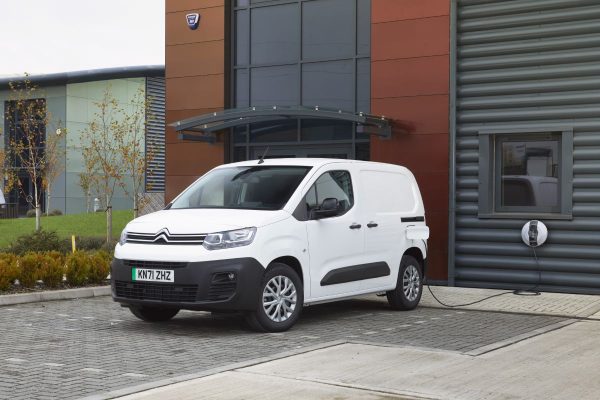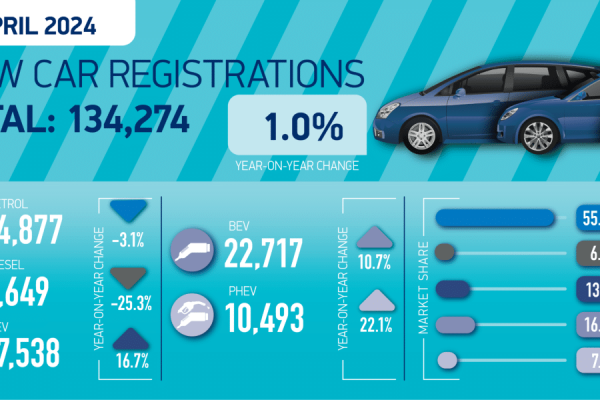MORE drivers are leasing their own cars and vans, with a 36% personal car leasing rise driving the market.
But with more free to choose what they want rather than being steered by business managers looking after company cars, the average CO2 emission of new lease cars has risen, going against the developing trend for lower emissions.
The personal contract hire (PCH) increase has had a key role in seeing the total business fleet leasing market for cars and vans growing 7.6% year-on-year to 1.35 million, according to findings from the latest Quarterly Leasing Survey carried out by the BVRLA.
BVRLA chief executive Gerry Keaney says: “Personal contract hire continues to drive growth in the car leasing market and this is having a clear impact on the automotive industry’s long-term goal of reducing CO2 emissions.
Company cars are cleaner than the average privately procured car, and the government should be supporting this market with a progressive company car tax regime that doesn’t encourage people to do their own thing.
We asked members of the Leasing Broker Federation Steering Committee for their thoughts on the BVRLA data:
Appointed Representative Opportunities with Wessex Fleet
Have you thought about growing your broker business? Are you looking for opportunities for growth? Then why not consider joining Wessex Fleet as an Appointed Representative?
Keeping you on the move with leasing solutions tailored to your needs
Leasys is the proud Contract Hire partner of the Stellantis brands, offering mobility solutions from medium and long-term rentals to management systems for company fleets.We work with Brokers to support all their customers requirements.
Accelerate your business with QV Systems & Leaselink
Unlock unparalleled efficiency in vehicle procurement with QV Systems’ Accelerate, now seamlessly integrated with Ebbon Automotive’s Leaselink. Tailored for brokers and funders, this integration streamlines the entire process from quote to delivery, empowering you to effortlessly source and order vehicles for your clients.
Graham Prince, director, Neva Consultants, said: “The tax system needs to be looked at very carefully as it appears to have tipped too far and is stopping drivers taking company cars despite their job requiring one.
“The level of tax now makes companies feel they need to give cash allowance too often and therefore the end result is that the PCH drivers are under no pressure to bring down CO2 and instead pick higher CO2 emission vehicles.
“Is BIK really a green tax or just a way of collecting more money because soon the tax revenue will dry up as more and more PCH is taken up in lieu of company cars?”
The BVRLA figures for Q2 2017 show that the car portion of the business fleet leasing market rose 2.4% to 979,000 year-on-year, a rate outstripped by the LCV sector which grew by 14.9% to 371,000. Year-on-year growth for both segments has continued to slow in 2017, with the business fleet leasing segment actually shrinking by 1% compared to the first quarter of the year.
Total car leasing (all leasing types) grew by 8% year-on-year, down from 11% in Q1 2017. Much of this growth continues to be driven by the personal contract hire (PCH) segment, although growth rates here have also fallen in 2017.
The latest data from BVRLA members shows that the PCH sector grew 36% year-on-year and 7% quarter-on-quarter.
Average CO2 figures for newly registered lease cars grew to 111.8g/km in Q2 2017, up from 110.8g/km (+0.9%) from the previous quarter and up 0.7% compared to the same period in 2016. The main reason for this rise is likely to be the increasing share of PCH vehicles within the wider BVRLA leasing fleet.
The average PCH car on the BVRLA member fleet had emissions of 120g/km CO2, compared to the 111g/km of those on contract hire.
The growth in average new car emissions was mirrored by the wider market, where average emissions for all new car registrations rose to 121.3 g/km, up by 0.7% year-on-year and the previous quarter.
Overall, the newly registered lease car on a BVRLA member’s books still has average emissions 8% lower than the overall UK new car market.
The proportion of diesel cars in the BVRLA fleet remains static at 74.9% in Q2 2017, but has fallen 2.5% compared to the same period in 2016. Last quarter saw the proportion of new diesel registrations rise slightly to 68.1%, although this figure is 6.5% down year-on-year.



















